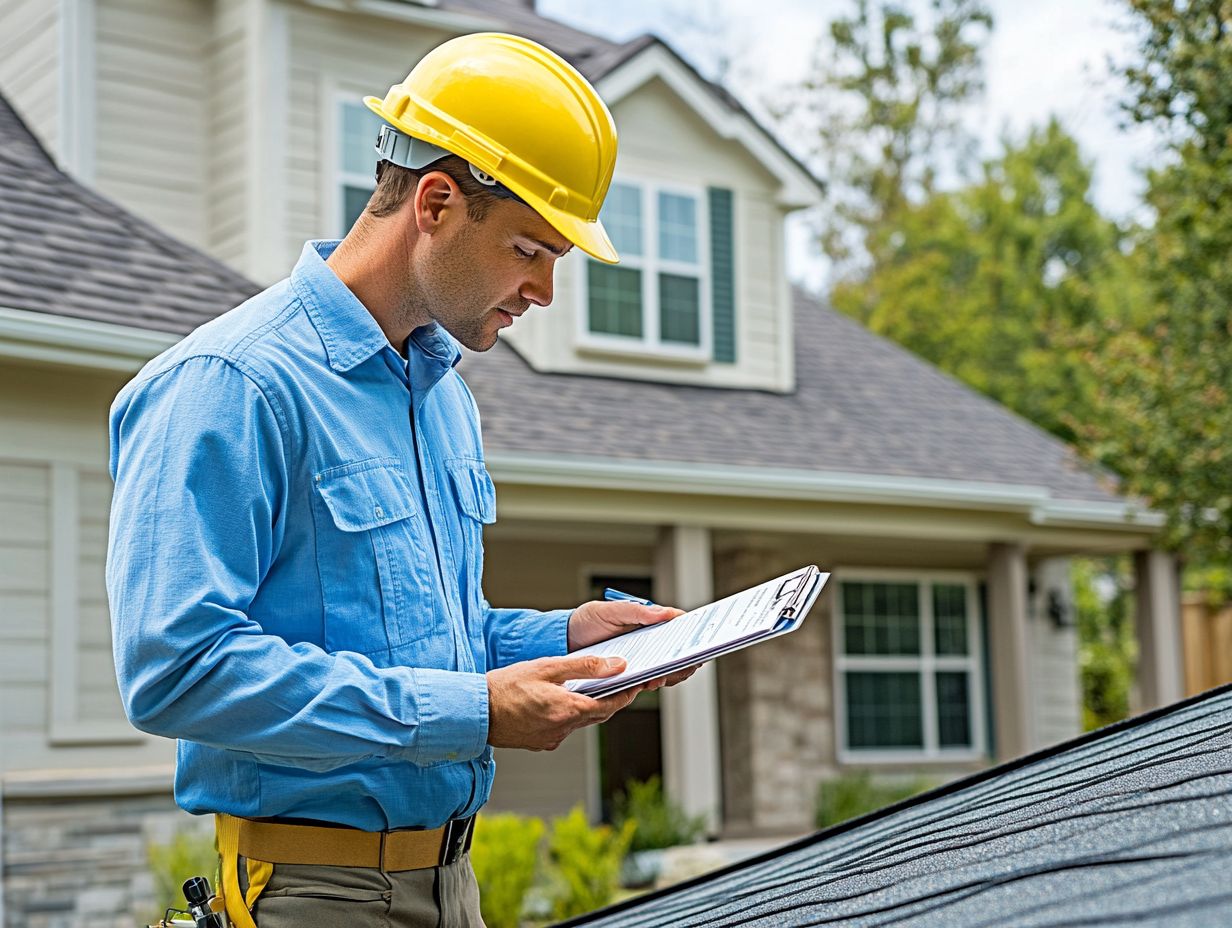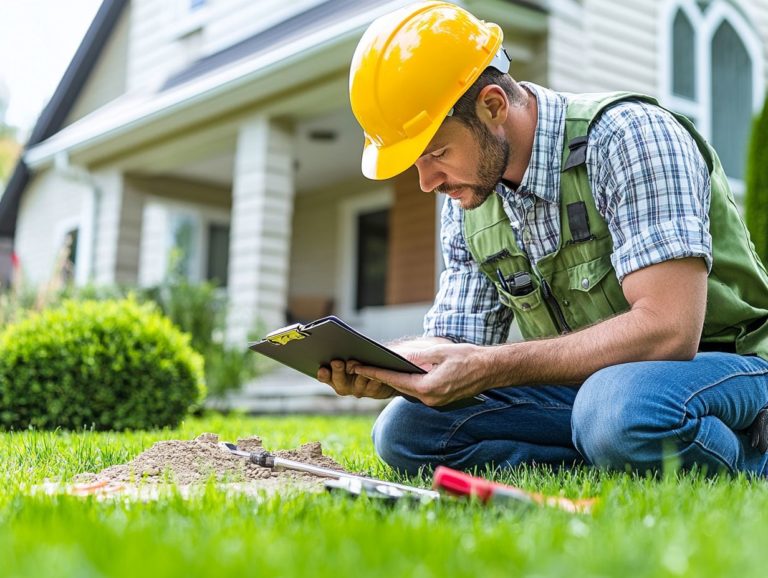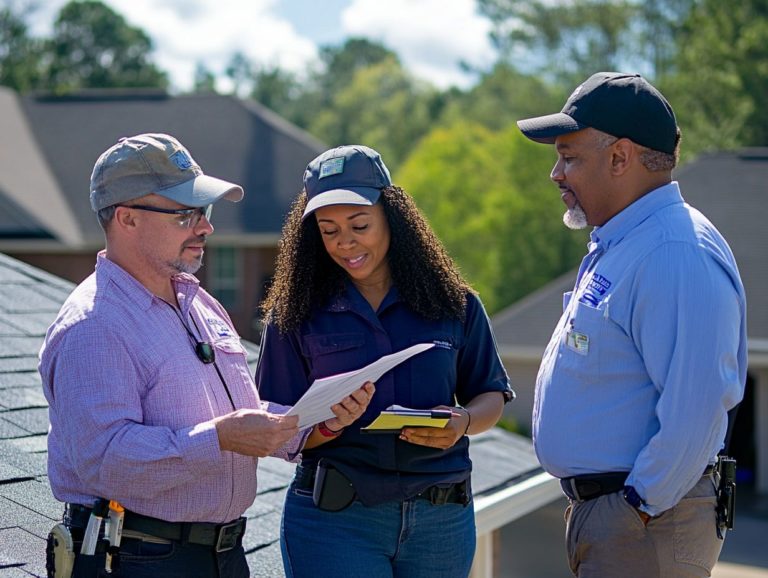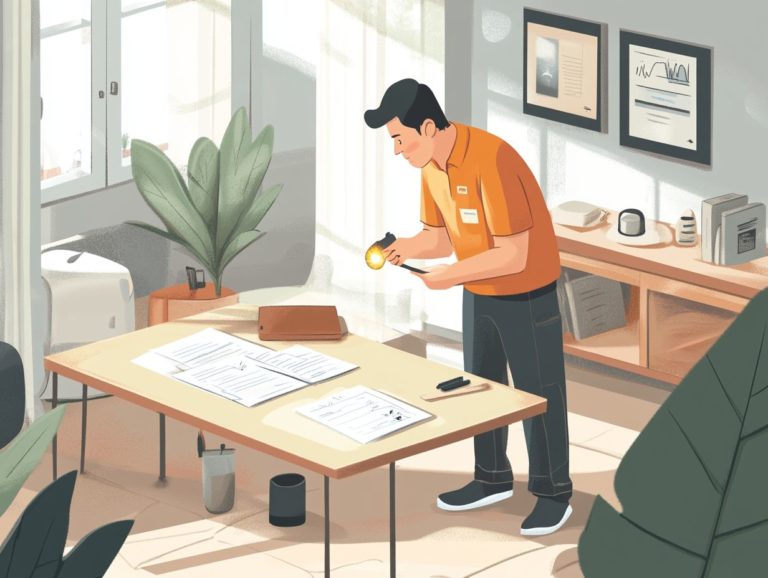Understanding the Home Inspector’s Role
When you re buying or selling a home, one crucial step that often slips through the cracks is the home inspection.
A home inspector is your ally in this process, offering invaluable insights that safeguard your investment and grant you peace of mind. This article delves into the definition and purpose of home inspectors, highlighting the significance of a comprehensive inspection and what inspectors typically scrutinize.
It also guides you through the home inspection process, provides tips for selecting a qualified inspector, and clarifies how to interpret the inspection report. With this knowledge at your fingertips, you ll be fully equipped to navigate your real estate journey with confidence.
Contents
- Key Takeaways:
- What is a Home Inspector?
- The Importance of a Home Inspection
- What Does a Home Inspector Look For?
- The Home Inspection Process
- Choosing a Qualified Home Inspector
- Understanding the Inspection Report
- Final Thoughts and Recommendations
- Frequently Asked Questions
- What is the role of a home inspector?
- What qualifications does a home inspector need?
- What areas of the home does a home inspector evaluate?
- Can a home inspector also provide repairs?
- How long does a home inspection typically last?
- What should I do with the findings from a home inspection?
- What qualifications does a home inspector need?
- What areas of the home does a home inspector evaluate?
- Can a home inspector also provide repairs?
- How long does a home inspection typically last?
Key Takeaways:

A home inspector plays a crucial role in buying or selling a home, providing a thorough assessment of a property’s condition. Understanding the role of home inspectors benefits both buyers and sellers, helping to identify potential issues and ensure a smooth transaction. When choosing a home inspector, consider factors such as experience, qualifications, and reputation to ensure a reliable and comprehensive evaluation.
What is a Home Inspector?
A home inspector is a licensed professional dedicated to carefully checking a home’s condition, ensuring it adheres to important safety standards and building rules crucial for real estate transactions. For more insights, consider understanding the process of home inspections.
This thorough inspection aims to equip you, the homebuyer, with an objective assessment of the property’s integrity, pinpointing potential issues that could impact both its market value and safety.
By providing detailed reports, home inspectors empower you and sellers alike to make informed decisions with confidence.
The Importance of a Home Inspection
Home inspections play a pivotal role in real estate transactions. They offer invaluable insights that help buyers and sellers make informed decisions about property assessments.
By uncovering potential issues, a comprehensive inspection reveals the true value of a property, ensuring safety and adherence to building codes.
What Does a Home Inspector Look For?
It’s important to know that home inspectors do a thorough check of your potential new home. Their meticulous evaluations focus on structural integrity, electrical systems, plumbing, and safety compliance to uncover any hidden issues. For more details on what to anticipate, consider reviewing what to expect during a home inspection.
By recognizing common red flags during this process, you can better understand the potential risks tied to a property, empowering you to make informed purchasing decisions.
Key Areas of Inspection
A licensed home inspector hones in on several vital areas during a comprehensive inspection, including the HVAC system, which controls heating, ventilation, and air conditioning, electrical systems, plumbing installations, and the overall structural integrity of the property.
These components are essential for assessing the condition and functionality of a home, ensuring it meets safety standards. As the inspection unfolds, the inspector meticulously documents their findings in a detailed report, spotlighting any potential issues that could impact the safety of the property. For more information, consider understanding the need for home inspections.
This thorough evaluation empowers you as a prospective buyer to make informed decisions, ultimately protecting your investment. By pinpointing areas that may require repair or upgrading, a home inspector enables you to address concerns proactively, fostering a secure and comfortable living environment.
Tackling these elements not only safeguards health and safety but also enhances the longevity of your property.
Common Red Flags
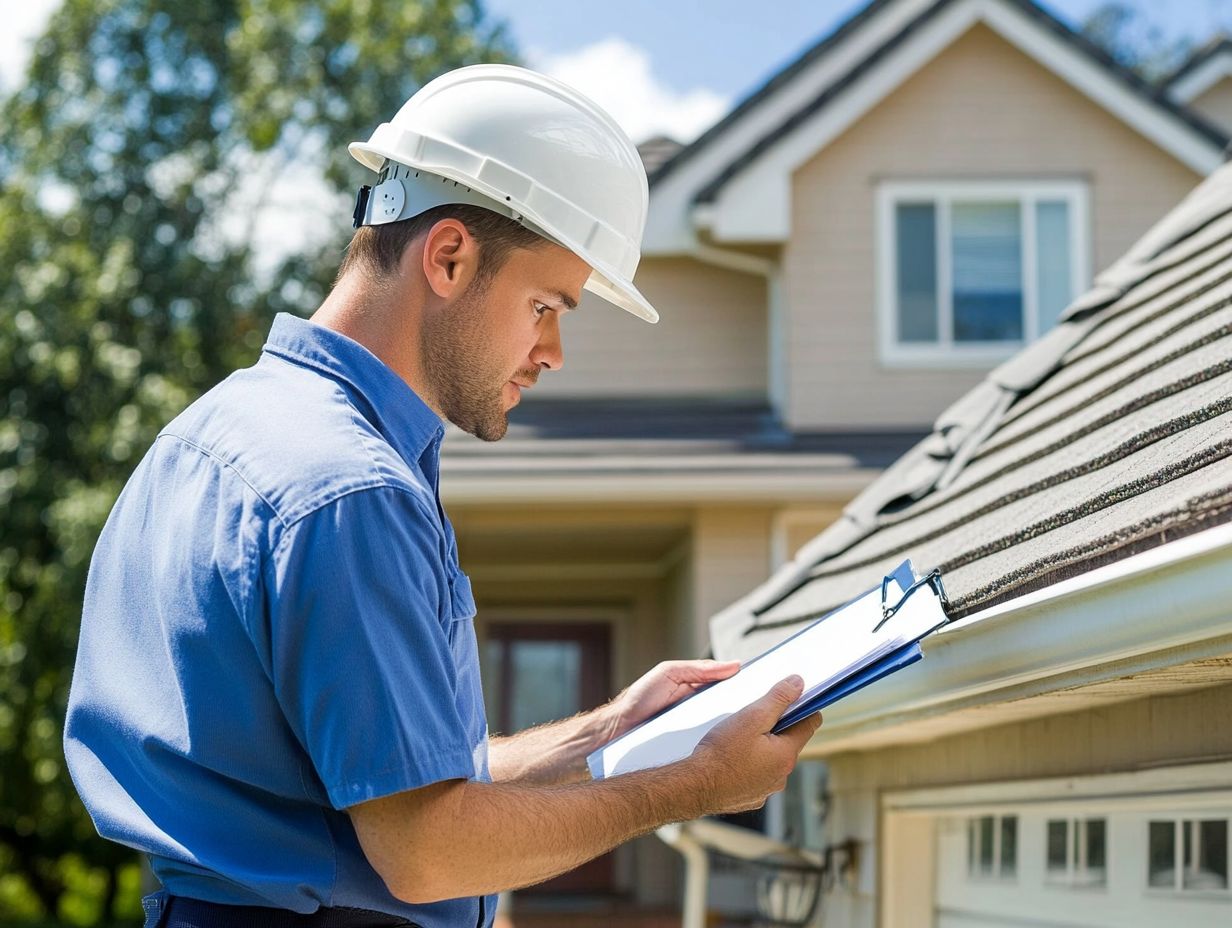
Common red flags identified by home inspectors can profoundly impact your assessment of a property’s structural integrity, bringing to light safety hazards that may call for immediate attention or repairs.
Warning signs like noticeable water damage, mold presence, or outdated electrical systems can dramatically shift the dynamics between buyers and sellers during a transaction.
As a potential buyer, you often weigh these factors against your budget and timeline, underscoring the importance for sellers to be transparent about any existing issues.
By addressing these concerns early in the process, both parties can avoid complications during negotiations, paving the way for a smoother home-buying experience and ultimately fostering a stronger relationship between you and the seller.
Remember, a home inspection could save you from costly repairs down the line don t skip this vital step!
The Home Inspection Process
The home inspection process unfolds as a detailed procedure, led by a licensed home inspector who assists you in understanding the necessity of home inspections and navigating a thorough check of the property.
This essential process is designed to provide you with transparency and assurance in the findings. It begins with scheduling the inspection, followed by a thorough check of the home, and ends with a detailed report that outlines the inspector’s findings and makes thoughtful recommendations for your consideration.
Step-by-Step Guide
A step-by-step guide to the home inspection process begins with scheduling an appointment with a qualified home inspector and ends with reviewing the inspection report that outlines the property’s condition.
Once you’ve secured your appointment, it’s time to prepare for inspection day. Ensure that all areas of the home are accessible, including the attic, basement, and any outbuildings.
When the inspector arrives, they will conduct a thorough examination of your property, meticulously assessing critical systems such as electrical, plumbing, and HVAC (Heating, Ventilation, and Air Conditioning).
Once the evaluation is complete, the home inspector will compile their findings into a comprehensive report. This document will detail any issues uncovered during the inspection, along with recommendations for repairs or further evaluations.
This thorough documentation is crucial for making informed decisions about the property’s future, ultimately safeguarding your investment and ensuring a safe living environment.
Choosing a Qualified Home Inspector
Choosing a qualified home inspector is essential for obtaining a comprehensive and precise evaluation of a property s condition.
A great home inspector can be a game-changer in your home buying journey! As you make this important decision, consider key factors such as their license status, experience, and approach to customer service.
Factors to Consider
When selecting a home inspector, you should weigh several key factors, such as their reputation in the community, relevant certifications, and their commitment to industry standards that guarantee quality inspections.
An inspector s experience can significantly influence the thoroughness and accuracy of the evaluation, especially in a region like Central Florida, where unique environmental factors must be taken into account.
It s essential to ensure they are well-versed in local building codes, as this familiarity guarantees all inspections align with applicable regulations and best practices.
A dependable inspector will also make use of advanced report-writing software, allowing them to produce detailed and clear inspection reports that are easily digestible for both buyers and sellers.
These tools not only enhance communication but also facilitate comprehensive documentation of findings, making them an invaluable asset for future reference.
Understanding the Inspection Report
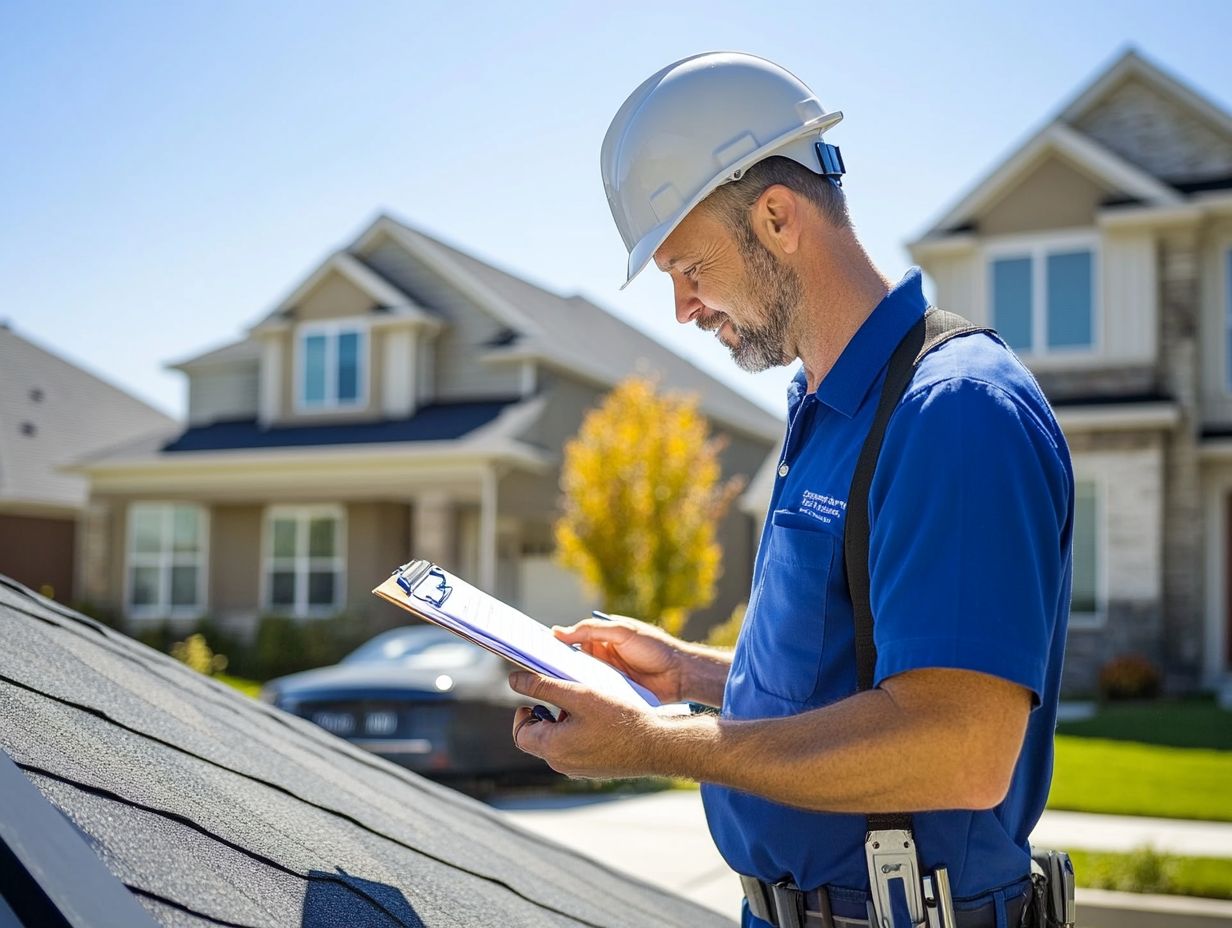
Understanding the inspection report is essential for you as a homebuyer or seller. It offers a comprehensive interpretation of the inspection results and outlines the necessary next steps and recommendations for property maintenance or repairs.
This level of transparency gives you the power to engage in informed negotiations during the real estate transaction, ensuring that you make decisions based on a clear understanding of the property’s condition.
Interpreting Results and Next Steps
Interpreting the results of an inspection report requires your careful attention to the findings, guiding you on the next steps to address any identified issues and ensure compliance with safety standards.
Understanding each detail in the report not only helps you assess the property s condition but also aids in making informed decisions about potential repairs or renegotiations.
It s wise to discuss the findings with your real estate allies agents or contractors who can offer valuable insights into the severity of the issues and the estimated costs.
Engaging in your due diligence at this stage is vital; it can reveal whether only minor fixes are necessary or if more significant structural concerns lurk beneath the surface.
Ultimately, this collaborative approach gives you the power to negotiate effectively, ensuring your investment is sound and well-informed.
In summary, a well-understood inspection report equips you with the insights needed to navigate your real estate journey confidently. Make sure to take action based on the findings to protect your investment!
Final Thoughts and Recommendations
Final thoughts on the home inspection process highlight the necessity of making informed decisions based on thorough assessments by trusted professionals. This approach can greatly affect how buyers and sellers interact.
When all parties are aligned, it fosters transparency and builds trust key elements in any real estate transaction.
As a buyer, ask for inspection recommendations. This can help you spot potential issues early, saving you from costly repairs later.
Being proactive also strengthens your negotiation position. You may even feel empowered to back out of a deal if serious concerns arise.
For sellers, getting an inspection before listing the home for sale shows your commitment to customer service and integrity. This effort shows the property’s condition and sets the stage for a smooth sale, ultimately maximizing value for everyone involved.
Frequently Asked Questions
What is the role of a home inspector?
Home inspectors evaluate a property’s condition and identify potential issues or safety concerns. Understanding the importance of home inspections provides crucial information that helps buyers make informed decisions and allows sellers to address issues before listing their home.
What qualifications does a home inspector need?
Home inspectors usually need a high school diploma and must complete a training program. Many states require them to be licensed or certified. Choose an inspector who is certified and experienced.
What areas of the home does a home inspector evaluate?
An inspector evaluates the home’s structure, including the foundation, walls, roof, and floors. They also check the electrical, plumbing, and Heating, Ventilation, and Air Conditioning (HVAC) systems.
Can a home inspector also provide repairs?
No, a home inspector’s job is to evaluate the home and provide a report. They cannot perform repairs or renovations to maintain objectivity and avoid conflicts of interest.
How long does a home inspection typically last?
The inspection duration can vary based on the home’s size, age, and condition. On average, it takes about 2-3 hours, but larger or older homes may take longer.
What should I do with the findings from a home inspection?
After receiving the written report from the home inspector, review it closely. Discuss any concerns with your real estate agent.
Consider consulting a specialist for a deeper evaluation of major issues. The findings can help you negotiate repairs or a lower price with the seller.
What qualifications does a home inspector need?
Home inspectors usually need a high school diploma and training. Many states require them to be certified or licensed.
What areas of the home does a home inspector evaluate?
A home inspector evaluates the home’s structure, including the foundation, walls, roof, and floors. They inspect the electrical, plumbing, and heating, ventilation, and air conditioning (HVAC) systems.
The inspector checks both the interior and exterior of the home, including any attached structures like garages or sheds.
Can a home inspector also provide repairs?
No, home inspectors only evaluate the home’s condition and provide a written report. They cannot perform repairs to maintain objectivity.
How long does a home inspection typically last?
The length of a home inspection varies by size and condition. On average, expect it to take 2-3 hours, but larger homes may take longer.
